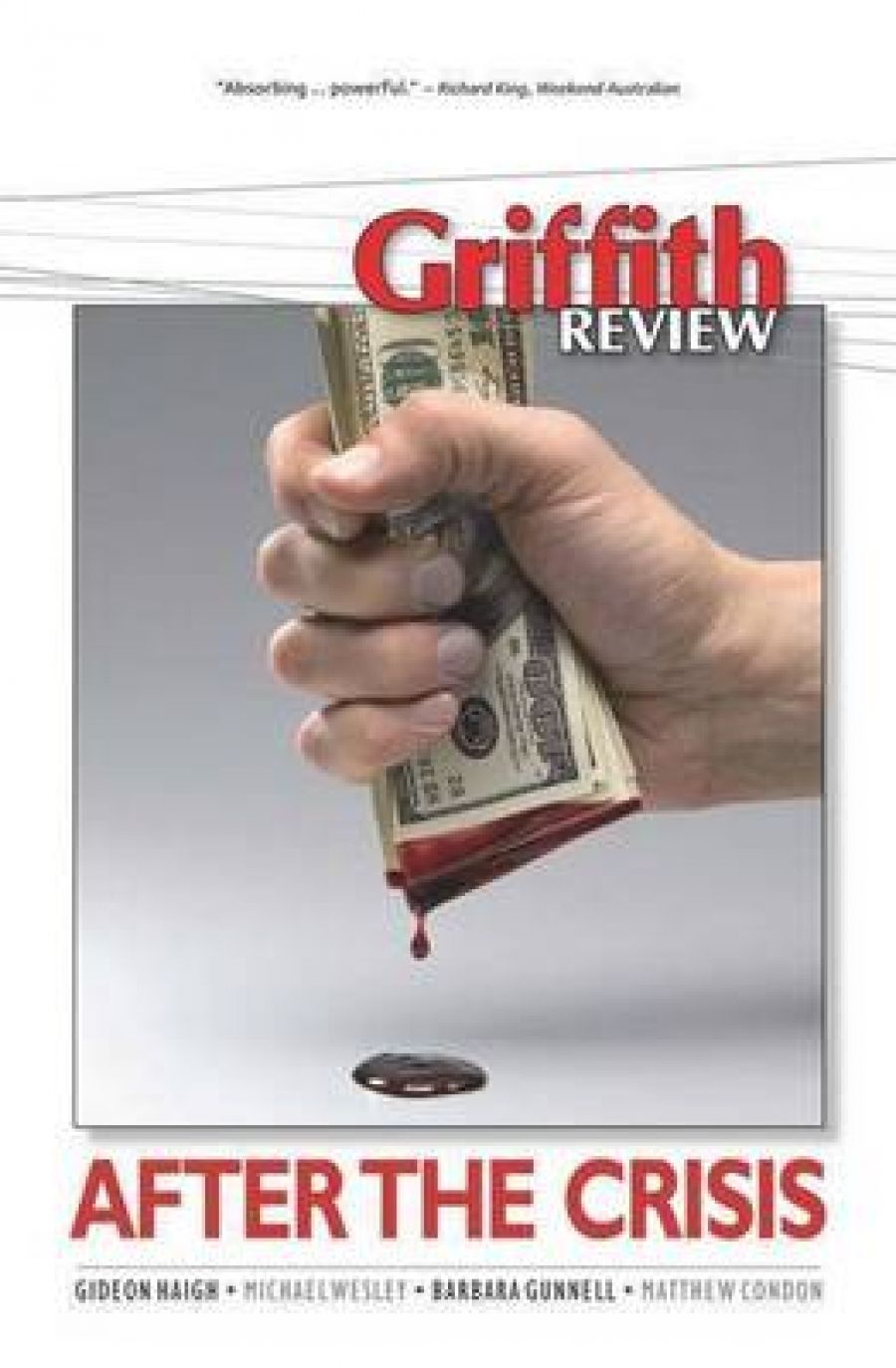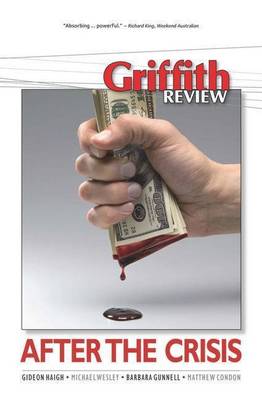
- Free Article: No
- Contents Category: Journals
- Review Article: Yes
- Online Only: No
- Custom Highlight Text:
This edition of Griffith Review is one of several local journals to take the ‘global financial crisis’ as its latest theme. A range of writers address this ‘crisis’ and other ‘major recessions’ throughout history. The journal opens with Julianne Schultz’s essay about how the global economy has worsened following the collapse of Lehman Brothers in September 2008. Other contributors investigate the impact of recession upon the media, consumer culture, the banking industry and the workplace. Examples are drawn from Australia, Britain, America, China and Dubai. Reference is made to Gordon Gekko, the anti-hero of Oliver Stone’s film Wall Street (1987). Gekko’s mantra, ‘Greed is good’, has come to define the 1980s, but viewers, as Schultz observes, tend to ignore the battle between ‘local enterprises’ and ‘clever schemers’ that is central to Stone’s movie. Schultz suggests that the schemers appear to have won.
- Book 1 Title: Griffith Review 25
- Book 1 Subtitle: After the crisis
- Book 1 Biblio: Text Publishing, $24.95 pb, 268 pp, 9781921520761
- Book 1 Cover Small (400 x 600):

- Book 1 Cover (800 x 1200):

A highlight of Griffith Review 25 is Geoffrey Barker’s wonderfully frank essay on the parlous state of Australian journalism. According to Barker, Australian ‘newspapers are engaged in a perpetual effort to cut costs and staff’. This emphasis on cost-cutting is partly responsible for the ‘dumbing down’ of newspaper content. I also enjoyed Mark Welker’s essay on ‘dead shopping centres’. Welker describes how once-thriving shopping centres can become unpopular, ‘dilapidated’ wastelands. His prose is evocative and his observational skills are sharp.
Griffith Review 25 has its shortcomings. Few of the contributors really convey how ‘global financial crisis’ might have an impact on already disadvantaged groups such as Aborigines. Some pieces seem unrelated to economics. One such is Chris Womersley’s moving short story about a middle-aged couple mourning their daughter. Overall, though, Griffith Review 25 is a thought-provoking and engaging reminder of how unpredictable global capitalism can be.


Comments powered by CComment